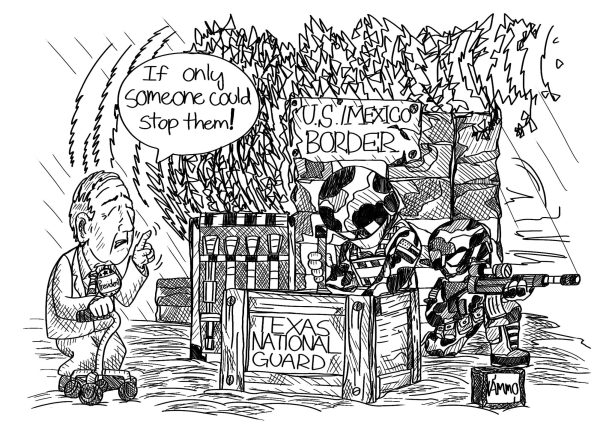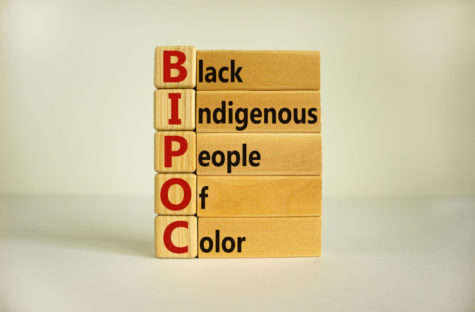Dress code policies stifle freedom of expression
November 4, 2014
Though freedom of expression is part of the broader interpretation of the First Amendment to the U.S. Constitution, educational and employment institutions violate this amendment by mandating what people can and cannot wear.
Several religions and societies have mandates on what is appropriate attire for their practitioners and citizens. Such mandates are culturally determined.
But employers and schools also have such mandates. We ask why.
When a person gets hired by a company, most likely they will sign a contract where all the company’s policies are written out in legalese jargon. An individual is subject to being reprimanded or fired for failure to adhere to such policies. More often than not, policy violations include non-compliance with dress code and proper attire.
Women are most often affected by such policies.
In an educational environment, girls are subject to severe and harsh punishment for wearing attire that the school administrators deem inappropriate.
The Guardian US highlighted some disturbing practices in an article this year: “A vocal campaign has emerged after recent incidents angered students in New York, Utah, Florida, Oklahoma and other states, with some accusing schools of sexism and so-called ‘slut shaming.’
“I do think these protests are a trend and I think it’s a good trend,” the Guardian quoted Ruthann Robson, a City University of New York law professor and author of “Dressing Constitutionally,” as saying.
The outcry has even produced such hashtags as #iammorethanadistraction on various social media networks and drawn support from some parents who say the application of dress codes can be unjust.
The pressure for girls and women in society is multi-fold and when employers also add to the stress of what to wear, how to wear it, what kind of makeup to use and how to look, it becomes very complicated to function in day-to-day life while trying to stay sane.
In 2010, Gawker.com reported on how American Apparel essentially has a “no ugly” policy. In an email sent to American Apparel employees, it stated, “Eyebrows must not be over- plucked. Full eyebrows are very much encouraged. Please do not dye your eyebrows a different color.”
The email also commented on how employees cannot wear too much makeup, style their hair or wear “distracting” jewelry.
American Apparel strives for a more natural look, which in this day and age is quite refreshing, but the manner in which it enforces its policies is quite distasteful.
Another email stated that all employees and prospective employees are required to submit both a headshot and a full body image and send it to the corporate office. This indicates that American Apparel may be using discriminatory practices in their hiring policy.
In an article written for Al Jazeera’s America website, Amel Ahmed commented on how women and girls are seen as objects.
“Viewed as an object of distraction for boys and by school dress codes, girls are usually admonished in language that encourages their objectification,” said Ahmed.
One of the most controversial reports was that Florida teen Miranda Larkin, was dress-coded and made to wear a bright yellow shirt and red sweatpants with the words “dress code violation” printed on it.
The young girl was so stressed by the situation she broke out in hives.
Shaming someone for what they choose to wear is never OK.
As a society we continue to make unreasonable and biased judgements of people’s character based on their appearance and attire.
As a society we continue to put the burden on girls and women to dress conservatively and “appropriately” instead of teaching boys and men to not see females as sexual objects
Of course men are also subjected to societal rules which bombard both sexes with ridiculous notions of what is appropriate.
If you wear too short of shorts, you are a slut.
If you wear too long of a skirt, you are a prude.
If you wear a Chador or hijab, you are a terrorist.
If you wear baggy jeans, you are considered a hoodlum or gangster.
If you wear too tight of pants, you are asking for attention.
If you wear too tight pants as a man, you are gay.
If you have tattoos, you are of low moral character.
All of these stereotypes just perpetuate hatred and misunderstanding and teach future generations that someone is worth less, depending on what they wear.
Instead, we as a society should focus on practicing and teaching self-control and polite behavior, and accepting people as they are, based on their character, rather than their outward appearance.
















































































